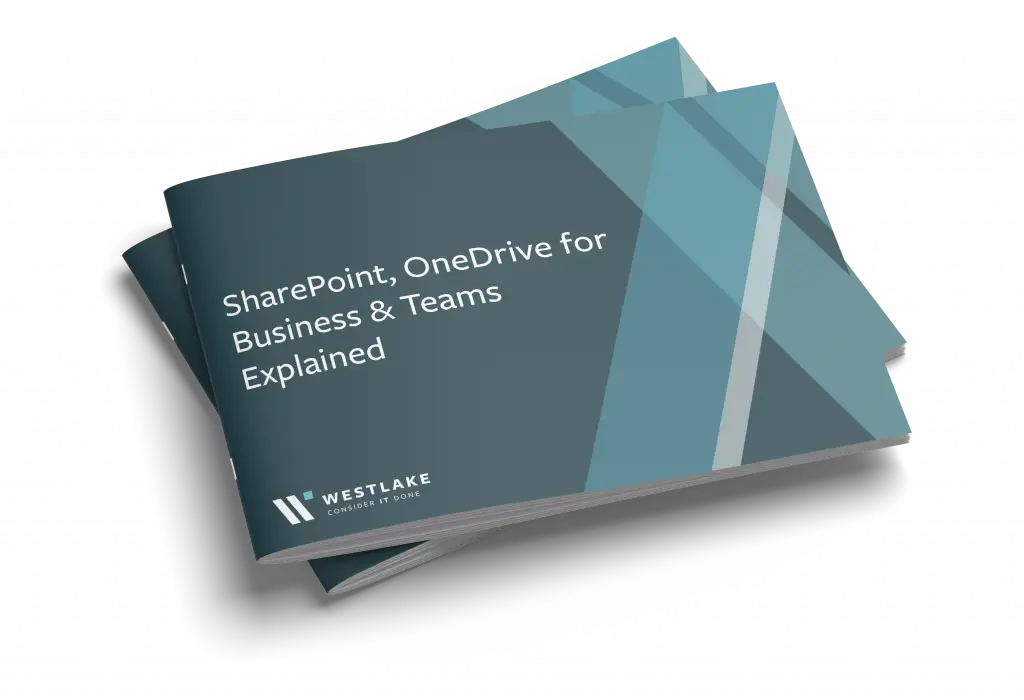Since the recent price rise, you may be wondering “How much is Microsoft 365 for small businesses?”. This guide will help you to understand Microsoft 365 pricing and help you to decide whether migrating to the system will work for your business.
Microsoft 365 for Business (previously known as Office 365 for Business) will give your small-medium-enterprise (SME) the full benefit of Cloud computing including in-built security, backup, automated upgrades and incredible flexibility and agility.
Maximise productivity by providing your team with the tools to work anywhere, share information and collaborate with co-workers in real-time. Microsoft 365 products are subscription-based and charged on a per-month basis, with a range of package levels.
In this guide, we’re going to outline what Microsoft 365 package is best for small businesses and how much it costs so you get the most effective solution for your organisation.

What package is best for my small business?
With 4 different packages available for businesses of all sizes, there is a plan for all organisations whether that be small startups or a juggernaut of the technology world. Services and features vary from package to package, but all businesses choosing to migrate their operations to Microsoft 365 will benefit from the following:
- Web and mobile versions of Office applications
- Email and calendaring
- File storage and sharing
- Teamwork and communication
- Security and compliance
- Support and deployment
If you want to see a detailed guide on what Microsoft 365 is, we’ve written a definitive blog that breaks down all the features and how we can help your business migrate across.
At Westlake IT, we highly recommend Microsoft 365 for those who operate an SME. These packages offer those who run startups and small businesses the opportunity to effectively communicate with staff, customers and other stakeholders, store a HUGE amount of data, increase productivity and creativity as well as a long list of other benefits.
How much does Microsoft 365 cost?
All packages vary in cost ranging from £4.50 – £15.10 per user/month.
To safely migrate your previous work across to Microsoft 365 you will need expert support – otherwise, you put a lot of data at risk during the transition. Westlake IT has years of experience in helping small businesses migrate to Microsoft 365, so you can be sure that your data is in safe hands.
Microsoft 365 Business Basic
Microsoft 365 Business Basic costs £4.50 per user/month and offers small businesses a lot of Microsoft’s high-quality features.
Microsoft 365 Apps for Business
Microsoft 365 Apps for Business costs £7.90 per user/month and the main difference to Business Basic is that the Office apps can be installed as desktop versions with premium features.
Microsoft 365 Business Standard
Microsoft 365 Business Standard costs £9.40 per user/month and is a popular choice amongst small business owners.
Microsoft 365 Business Premium
Microsoft 365 Business Premium costs £16.60 per user/month and is Microsoft’s complete package suitable for larger businesses.
How can Westlake IT help?
With so much on offer, any small business or startup should seriously consider migrating over to Microsoft 365. If transferring data or the incapability of setting it up is a stumbling block for your business, then Westlake IT can help.
We provide both cloud migration services and licensing for Microsoft 365, as well as expert advice on what package is best for you. To find out how we can help your business migrate to Microsoft 365, head on over to our dedicated Microsoft 365 page.
As well as providing Microsoft 365 migration and licensing, we also offer expertly managed IT support services for both local and national small businesses. IT support is a huge part of any business and sometimes you need help from external sources and that’s exactly what we’ve been doing for the last 15 years.
Get in touch with a member of our team to discuss how we can help your business make a smooth transition to Microsoft 365 today!





